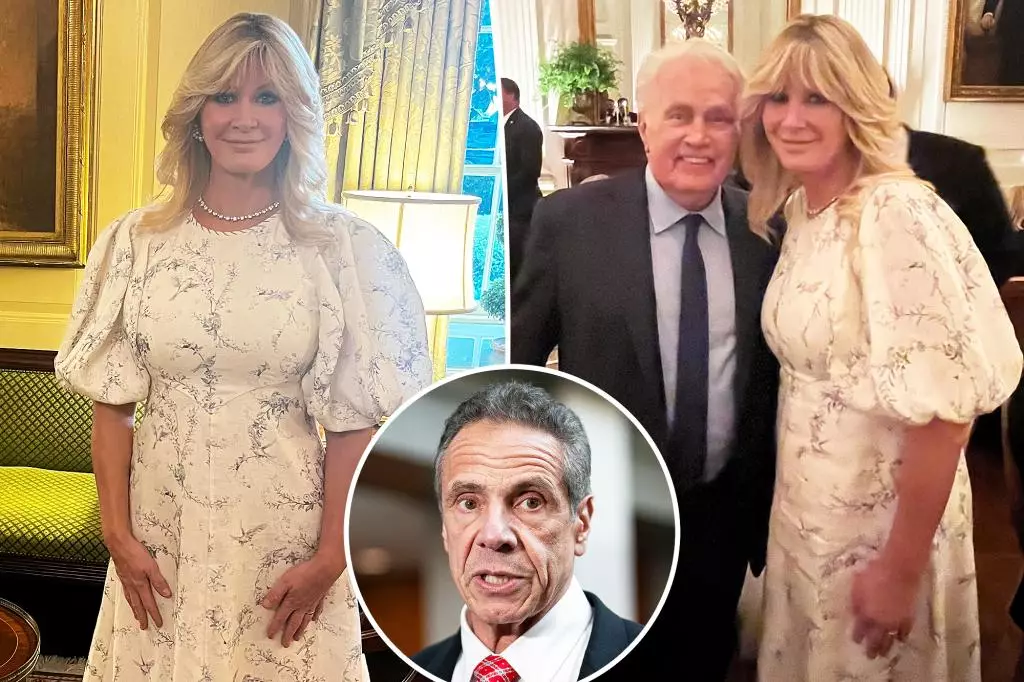Andrew Cuomo, the former governor of New York, once stood as a prominent figure in the Democratic Party, even harboring aspirations for a presidential run. His tenure was marked by a notable rise in acclaim, largely attributed to his presentations during the COVID-19 pandemic. However, this period of admiration quickly plummeted into controversy and scandal, threatening to dismantle his political ambitions entirely. The shift in Cuomo’s fortune has become symbolic of the pitfalls that can accompany public service, revealing the precarious nature of political success.
The recent appearance of Sandra Lee, Cuomo’s former girlfriend, at a high-profile event in Washington D.C. served to remind many of their past connection and the contrasting trajectories of their lives since their split. Lee, now a member of the White House Historical Association’s Board, appeared at a dinner celebrating an exhibition illustrating the history of the White House. This starkly juxtaposed Cuomo’s downward spiral. Commentators noted the irony in Lee’s elevation within public circles, hinting that she has found success in her endeavors while Cuomo’s reputation continues to be marred by scandal.
The dinner, hosted by President Biden and First Lady Dr. Jill Biden, served not just as a gala but as a representation of the layers of American political history, attended by several notable figures. As one insider quipped, “At least one of them made it to the White House,” the statement seemed to encapsulate the bittersweet outcome of both their journeys. It is evident that while Cuomo grapples with the remnants of his political ambitions, Lee engages with the legacy of American leadership in a manner that seems all but closed off to him now.
In recent months, the conversations surrounding Andrew Cuomo have turned towards his potential candidacy for the mayor of New York City. While speculation mounts over his political reemergence, it sheds light on the challenges and scrutiny he would face. Cuomo’s previous administration faced severe criticism for its handling of nursing home policies during the pandemic, alongside allegations of sexual misconduct that forced his resignation from the governorship. Though he has denied these allegations, the shadow they cast on his reputation is undeniable.
Recent reports suggest that Cuomo’s supporters are keen on reigniting his political career at a local level as the city’s current administration faces its own tribulations. Transitioning from governor to mayor might offer a different platform for Cuomo, yet the question lingers: can he rebuild his public image and regain the trust of voters? Meanwhile, his former aide Melissa DeRosa’s comments hint at lingering aspirations within political circles, suggesting that the idea of a Cuomo comeback is still afloat, even as challenges loom large.
The political landscape is continually shifting, a reality that those like Cuomo must navigate carefully. As he contemplates his next steps, those around him are already carving their own paths, with Lee exemplifying a transition from an often-criticized association to a position of influence. While the story of Andrew Cuomo is far from over, it serves as a powerful reminder of the volatility inherent in political life, where today’s heroes can quickly become tomorrow’s pariahs. The dynamic between Cuomo and Lee underscores a wider narrative on the importance of resilience and adaptation in the face of adversity within the political realm.

